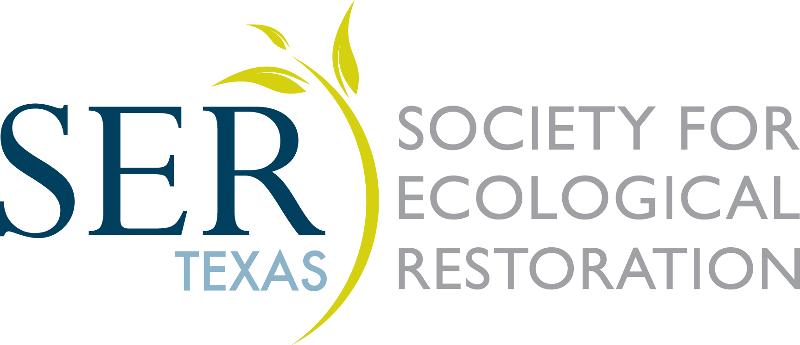|
|
| Society for Ecological Restoration Texas Chapter  |
| TXSER Weighs In: Legislative Matters Prescribed Burning in the Hot Seat! February, 2017 |
|
|
Sponsor: Representative Roberto Alonzo
Critical bill language:
"An employee of a municipality*... may not perform a duty that is classified as a wildland firefighting duty, including conducting a prescribed burn, unless that person is a permanent, full-time fire department civil service employee..."
What this bill would do:
The most substantial action of H.B. 1009 is to classify prescribed burning as a firefighting duty which would prevent municipal (city) land managers throughout Texas from applying prescribed burns. Prescribed burning is currently regulated in Texas as a land management activity.
 |
|
 |
Prescribed burn. Photo credit: USFS |
The back story:
This bill was authored by the Austin Firefighter's Association (AFA), the union for Austin Fire Department (AFD) firefighters. AFA contends that fire departments should be in charge of prescribed burns on municipal lands to ensure they are conducted safely. To our knowledge, only two cities in the state of Texas engage in prescribed burning: Fort Worth and Austin.
The Fort Worth Nature Center and Refuge conducts prescribed burns for habitat management while the Austin Water Utility (AWU) regularly conducts prescribed burns on the City of Austin Water Quality Protection Lands and Balcones Canyonlands Preserve, both of which it manages. AWU follows the standards of the National Wildfire Coordinating Group, which are widely accepted as the most rigorous standards for wildland fire operations.
Despite the union's contention that the fire department should be in charge of prescribed burns on City land, AWU prescribed burn managers have provided a substantial amount of wildland fire training for Austin firefighters. Since 2006, AWU has directly trained AFD firefighters on prescribed burns as well as at the AFD academy. Further, in 2011, AFD requested emergency assistance from AWU on multiple wildfires threatening neighborhoods. When AFD needed a burn boss in their fledgling Wildfire Division, they hired the individual who built AWU's prescribed burn program. Finally, these two agencies continue to collaborate on prescribed burns and engage in mutual cross-training.
H.B. 1009 was filed previously and failed during the 2013 and 2015 legislative sessions. Notably, the bill has not been supported by many entities that it would affect, such as the City of Austin, the Austin Fire Department, the Fort Worth Nature Center and Refuge, and the Texas Association of Firefighters.
Pros:
- For those fearful that prescribed burns threaten public safety, this bill would restrict prescribed burning by municipal employees. It would not, however, explicitly restrict burning by county, state, or federal employees, private companies, organizations, or private landowners.
Cons:
This bill would...
- Prevent qualified municipal land managers from implementing an important management tool.
- End collaborative partnerships such as between the Austin Water Utility and the Austin Fire Department as well as between the Fort Worth Nature Center and Refuge and the Fort Worth Fire Department.
- Reclassify prescribed burning - currently regulated in Texas as a land management activity - as a firefighting activity. This would create confusion within the regulations pertaining to prescribed burning and could be problematic for counties, state agencies, organizations, and individuals who engage in prescribed burning in Texas. We fear that counties could in the future be subject to similar prescribed burning restrictions.
- Prevent fire departments from using part-time or temporary employees in wildland firefighting activities.
The bottom line:
Fire is a natural process and is important for the proper functioning of most Texas ecosystems. Prescribed burning is a powerful tool used by land managers to mimic the effects of natural fires. While prescribed burning draws upon many of the skills used in firefighting, it is ultimately a land management practice and must be classified and regulated as such.
H.B. 1009 is one union's attempt to secure more money, resources, and jobs for its members by restricting the activities of municipal employees. It would hinder natural resource management by restricting and bureaucratizing prescribed burning and could ultimately be detrimental for public safety by ending collaborative relationships that facilitate wildland fire training for fire departments.
How to take action:
- Call, e-mail, or visit members of the committee to which H.B. 1009 is assigned. A bill alert will notify you when it is assigned. (As of this writing, H.B. 1009 had not yet been assigned to committee.)
- Travel to the capitol and voice your concerns when the bill comes before committee.
- E-mail Gwen Thomas, TXSER's Chapter Director, at [email protected], if you would like e-mail updates about this bill or wish to participate in TXSER action related to this issue.
* Only municipalities that have adopted Local Government Code Chapter 143 are covered by H.B. 1009.
|
|
|
Prescribed burn. Photo credit: TXSER Archives.
|
|
|
The Society for Ecological Restoration, Texas Chapter promotes ecological restoration as a means of sustaining the diversity of life on Earth and
re-establishing an ecologically healthy relationship between nature and culture. |
|
|